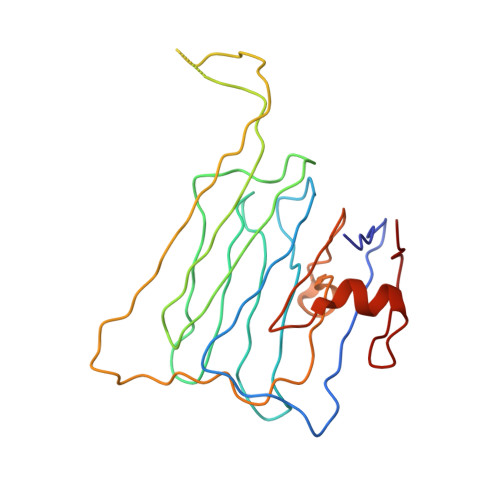Splice Form Dependence of beta-Neurexin/Neuroligin Binding Interactions.
Koehnke, J., Katsamba, P.S., Ahlsen, G., Bahna, F., Vendome, J., Honig, B., Shapiro, L., Jin, X.(2010) Neuron 67: 61-74
- PubMed: 20624592
- DOI: https://doi.org/10.1016/j.neuron.2010.06.001
- Primary Citation of Related Structures:
3MW2, 3MW3, 3MW4 - PubMed Abstract:
Alternatively spliced beta-neurexins (beta-NRXs) and neuroligins (NLs) are thought to have distinct extracellular binding affinities, potentially providing a beta-NRX/NL synaptic recognition code. We utilized surface plasmon resonance to measure binding affinities between all combinations of alternatively spliced beta-NRX 1-3 and NL 1-3 ectodomains. Binding was observed for all beta-NRX/NL pairs. The presence of the NL1 B splice insertion lowers beta-NRX binding affinity by approximately 2-fold, while beta-NRX splice insertion 4 has small effects that do not synergize with NL splicing. New structures of glycosylated beta-NRXs 1 and 2 containing splice insertion 4 reveal that the insertion forms a new beta strand that replaces the beta10 strand, leaving the NL binding site intact. This helps to explain the limited effect of splice insert 4 on NRX/NL binding affinities. These results provide new structural insights and quantitative binding information to help determine whether and how splice isoform choice plays a role in beta-NRX/NL-mediated synaptic recognition.
Organizational Affiliation:
Department of Biochemistry and Molecular Biophysics, Columbia University, New York, NY 10032, USA.
















